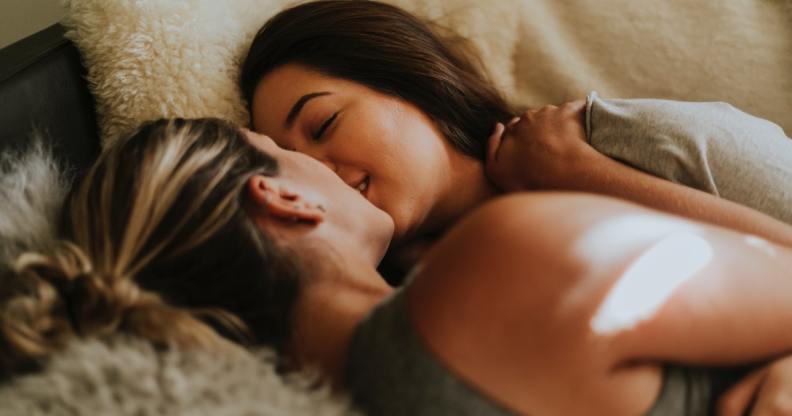Over 90% of queer women feel negatively stereotyped in media

90 percent of queer women said the media pushes negative stereotypes about them (Pexels)
More than 90 percent of queer women feel they are negatively stereotyped in popular media, a survey has found.
The survey was conducted by media agency UM and surveyed 500 women who identified as queer. The survey asked participants to identify some of the most offensive stereotypes about queer women that are prevalent in popular media.
Queer women identified a number of harmful stereotypes about their community
82 percent of respondents drew attention to the stereotype that one woman in a female same-sex relationship is “the man” and one is the woman.
Elsewhere, 75 percent of the participants took issue with the stereotypical image of queer women as always having short hair, and 74 percent said the media pushes a stereotype that they are “butch and manly.”
“Brands and the media should put effort into raising the visibility of queer women and challenging damaging stereotypes, as it can help to break down societal barriers as well.”
– Michael Brown, head of insight at UM
Participants also identified the stereotype that they are “man haters” as being offensive, and 57 percent objected to the stereotype that “they have had a bad experience with a man that made them queer.”
Respondents identified film as the worst culprit for pushing these negative stereotypes (51 percent), closely followed by television shows (50 percent).
Meanwhile, 40 percent said celebrity culture propagates negative stereotypes about their community.
Participants think the media shies away from representing them
85 percent of respondents said they would like to see better representation of queer women on television and in government. 80 percent think the media shies away from representing them because there is a perceived risk of not appealing to a “mass market.”
61 percent said they think the media is reluctant to represent them because people are uncomfortable with their identities. 83 percent said society tries to “sweep queer women under the rug” and 86 percent said queer men have better public visibility than they do.

Pexels
82 percent said they might have come out earlier in life if they had seen people like themselves being represented in advertising and 91 percent of respondents said they face shocking levels of misogyny in society.
While some stereotypes were simply seen as insulting, others were seen as extremely offensive.
Michael Brown, head of insight at UM, said that this cohort continues to face a “worrying amount of stigma.”
“Brands and the media should put effort into raising the visibility of queer women and challenging damaging stereotypes, as it can help to break down societal barriers as well.”

